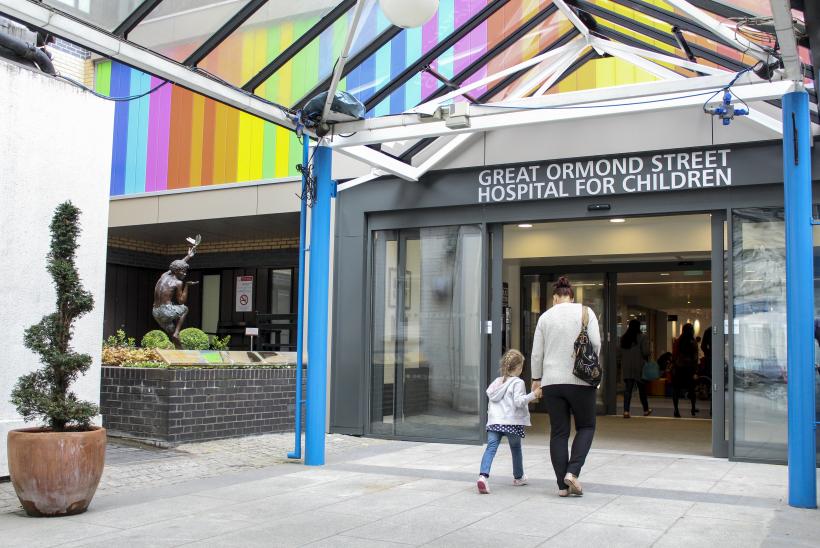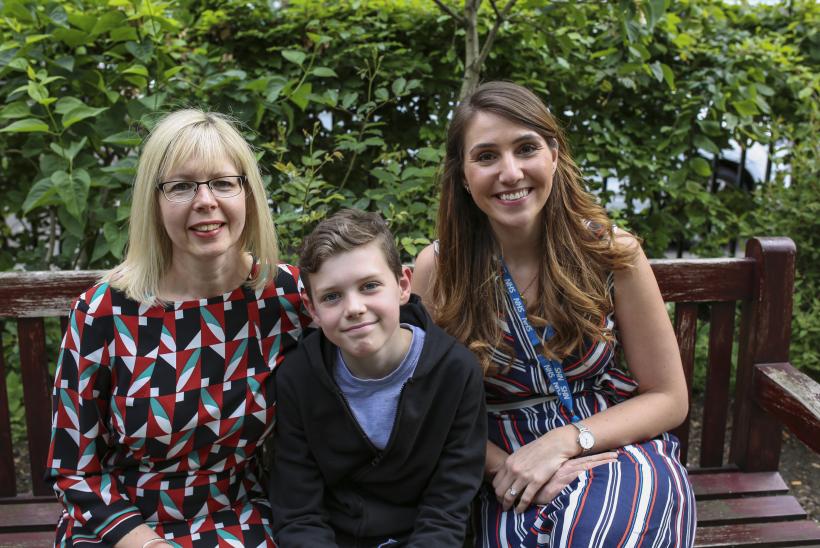How psychology can help children with anxiety
Meet Dr Maria Hadji-Michael, Clinical Psychologist at Great Ormond Street Hospital for Children (GOSH)!
Dr Hadji-Michael supports patient Oscar with his anxiety. Oscar has Tourette syndrome, but when he came to her, his biggest difficulty was anxiety. She shares how the use of exposure tasks (‘facing fear’) can help reduce anxiety in young patients like Oscar and why we need to dispel common misconceptions around Tourette’s syndrome.
Child psychology
“As part of the Psychological Medicine Team, I support children with complex mental health conditions in the context of physical health problems or neurodevelopmental disorders (such as ADHD and Autism). I trained in child psychology because I have always had a real interest in people, why they do what they do, why they think how they think, why they feel the way they feel.
“Helping children understand, recognise and better manage their emotions and actions is deeply rewarding. Supporting children at this young age gives one the opportunity to make meaningful changes to a young person’s life, such as helping them to attend school more regularly, make friends more easily and overall be happier young people.
“Oscar has had motor and vocal tics for more than a year. In 2018, Oscar also began to develop unusual movements which were not tics and he and his family noticed were influenced by high levels of anxiety. These dramatic movements meant that Oscar dropped to the floor suddenly and this was happening up to 100 times a day when they were at their worse. The collapsing episodes were so impairing that Oscar had stopped attending school regularly, could not go places on his own, or see his friends as often as he would like.
What is exposure and response prevention?
Once it became clear that these dropping episodes were more related to anxiety than to Tourette’s, Oscar received cognitive behavioural therapy with exposure and response prevention (ERP). ERP teaches a young person to confront situations that induce anxiety but to practice not having the usual response to the fear and uncomfortable feeling. The usual response when afraid is to run away or avoid the situation all together.
Dr Hadji-Michael explains how ERP has benefitted Oscar: “ERP has given Oscar the opportunity to confront his fears and to gradually learn to resist having his usual response to the anxiety. For example, when confronted with the idea of using an elevator, Oscar began to feel very anxious and opted to use the stairs (avoidance pattern) – thus reinforcing his fear of elevators. After the first few times of practicing confronting his fears, he was able to experience his anxiety not being as strong, and not lasting as long. He was then able to move on to more difficult exposure exercises.
“Oscar has grown in confidence over the course of therapy. He is now back at school full time, seeing friends and overall a much happier young person. His dropping to the ground movements have also reduced to only one every few weeks. Oscar continues to have tics (Tourette’s syndrome) but he is much less anxious about what people think about him and he is now able to do all the things that other children his age do.”
Tourette’s syndrome
Dr Hadji-Michael is keen to dispel incorrect assumptions about Tourette’s: “Often, there is a misconception that all people with Tourette’s syndrome have swearing tics. In reality, only a small percentage of those with Tourette’s syndrome develop these tics.
“There is another misconception that Tourette syndrome is always debilitating. For a small minority of individuals, tics, anxiety or other associated problems can be tricky and will need further support. However, most people with Tourette syndrome, go on to lead rich, fulfilling lives and take part in just about any activity as anyone else.
“I would hope that in the future, there is greater awareness around Tourette syndrome and that teachers receive further education and training around supporting children.”

Psychology

Dr Maria Hadji-Michael
Clinical Psychologist
I offer comprehensive neuropsychological assessment for children and young people to help identify learning strengths and weakness, and to screen for specific learning difficulties such as Dyslexia and Dyscalculia. As part of the assessment, I am able to recommend evidence based strategies to help your child at home and at school, and will liaise with the Special Educational Needs Coordinator at your child’s school to ensure that recommendations are implemented in a timely manner.

